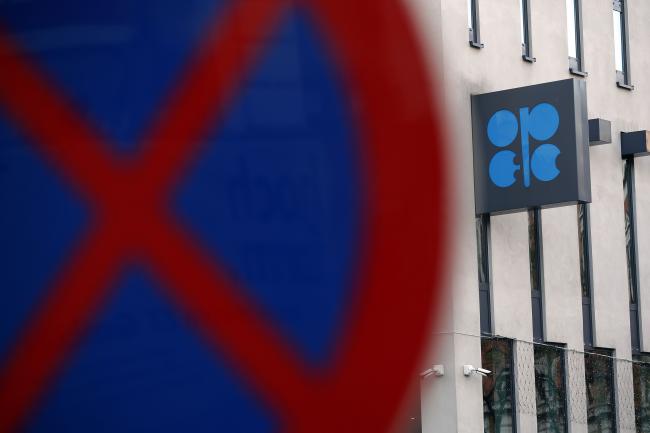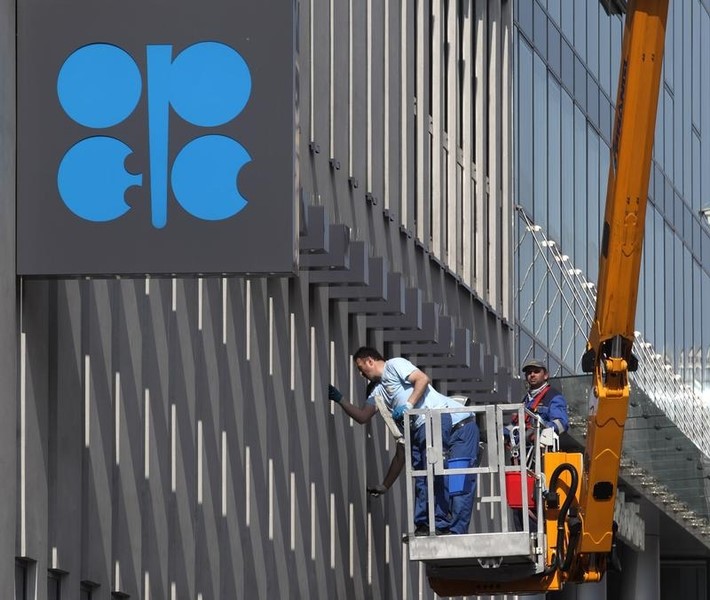(Bloomberg) --
A meeting between OPEC and its allies is unlikely to happen this week as Saudi Arabia and Russia draw a hard line over quota cheating by some nations.
The two leaders of OPEC+ told other members that talks planned for next week could also be skipped if countries including Iraq and Nigeria don’t make firm promises to implement their supply curbs, said people familiar with the matter.
Without a meeting to make changes to the deal, the group is due to start easing its cuts from July. Oil erased gains in New York, falling 1.4% to $36.30 a barrel as of 6:55 a.m. local time.
The Organization of Petroleum Exporting Countries and its allies have spent the past four days discussing a proposal to bring forward their meeting by several days to Thursday. That video conference would have discussed a short extension to the group’s current supply reductions, meaning the cuts wouldn’t be tapered from July 1 as planned.
Extending Cuts
While a consensus had emerged between Saudi Arabia, Russia and others to maintain the deepest level of cuts for one more month, that was contingent on other countries making solid promises to implement their reductions in full, the people said, asking not to be named because the information was private.
It’s unlikely that the OPEC+ meeting will happen on Thursday, said one person. Without assurances on compliance, Moscow and Riyadh warned that talks scheduled for June 9-10 may not happen either, the people said.
Saudi Arabia has long urged other members to share the burden of production cuts more equitably. Russia, which was often a laggard in the past but has stuck to its pledges this time, is also pushing for any extension to be conditional on compliance.
Broken Promises
Iraq and Nigeria, who have repeatedly flouted OPEC commitments during the past three years, made less than half of their agreed cutbacks last month, a Bloomberg survey showed on Monday.
Those countries are being asked to pump less than their quota in the coming months to make up for producing too much in May, the people said.
In what appeared to be a response to the pressure earlier this week, Iraq’s finance minister and acting oil minister, Ali Allawi, made an unusual Twitter appearance, saying the country is committed.
“Despite Iraq’s severe financial constraints, we’re addressing technical issues that will allow us to further reduce oil output,” he said.
His Nigerian counterpart Timipre Sylva posted a similar message on Instagram on Tuesday. He acknowledged that the West African country only made about half its pledged cuts last month, but promised that crude output will be within its quota by the end of June.
The original deal -- struck in April as the coronavirus lockdown savaged oil demand -- set out output reductions of 9.7 million barrels a day, or about 10% of global supply, for May and June. Saudi Arabia, Kuwait and the United Arab Emirates then made further voluntary cuts of about 1.2 million barrels a day for June, bringing the total OPEC+ curbs to almost 11 million barrels a day.
Under the current OPEC+ deal, supply cuts are meant to be eased to about 7.7 million barrels a day in July, followed by an additional tapering at the start of 2021.
(Updates with meeting dates in sixth paragraph)
©2020 Bloomberg L.P.

